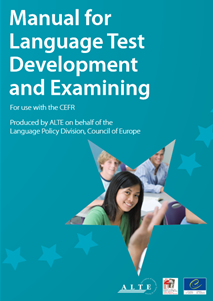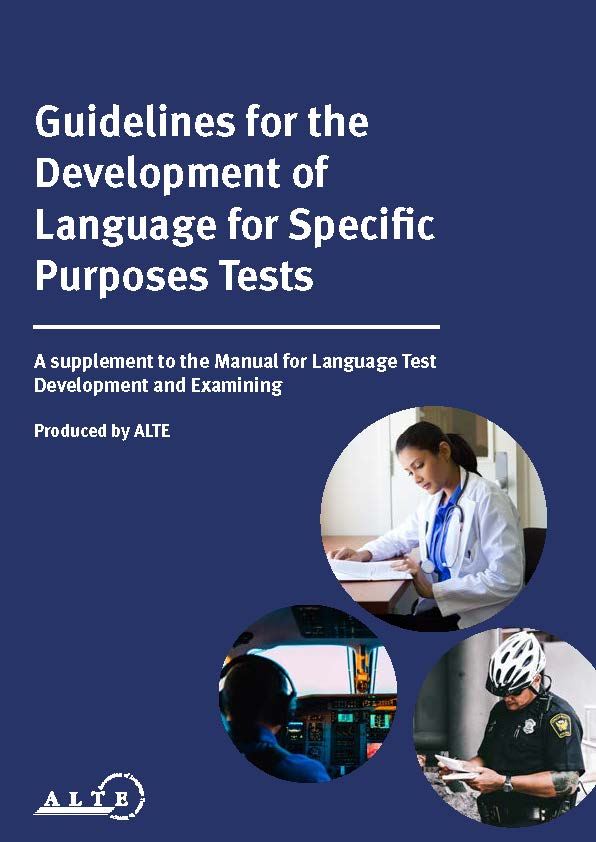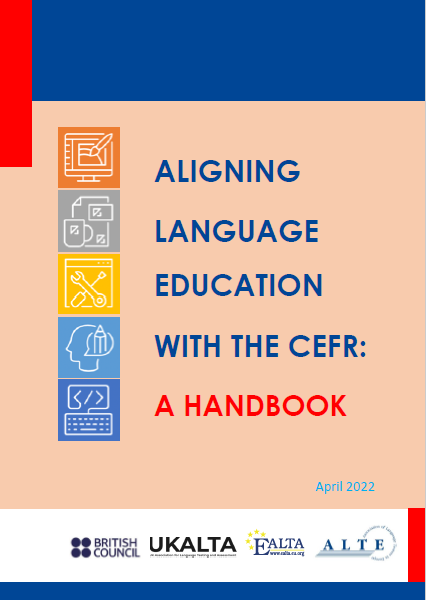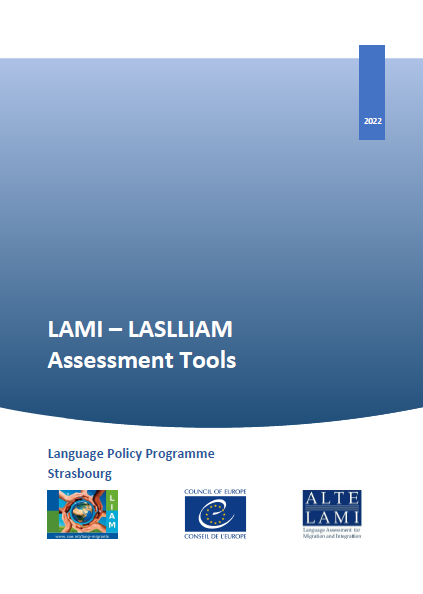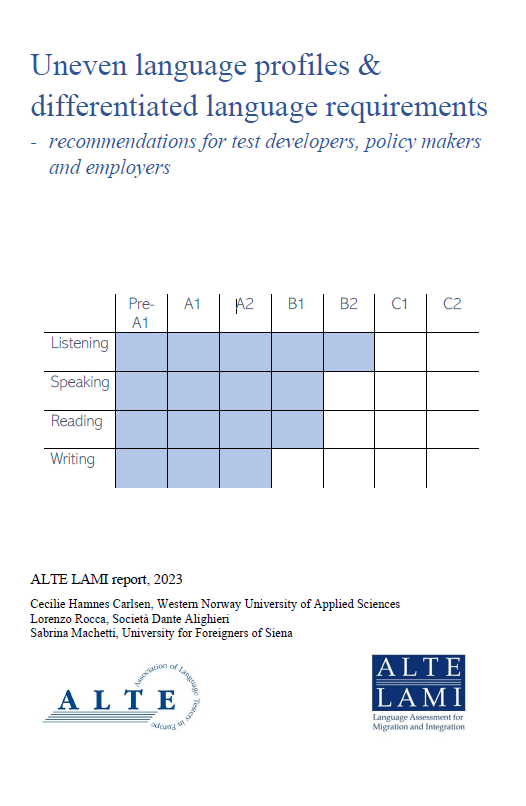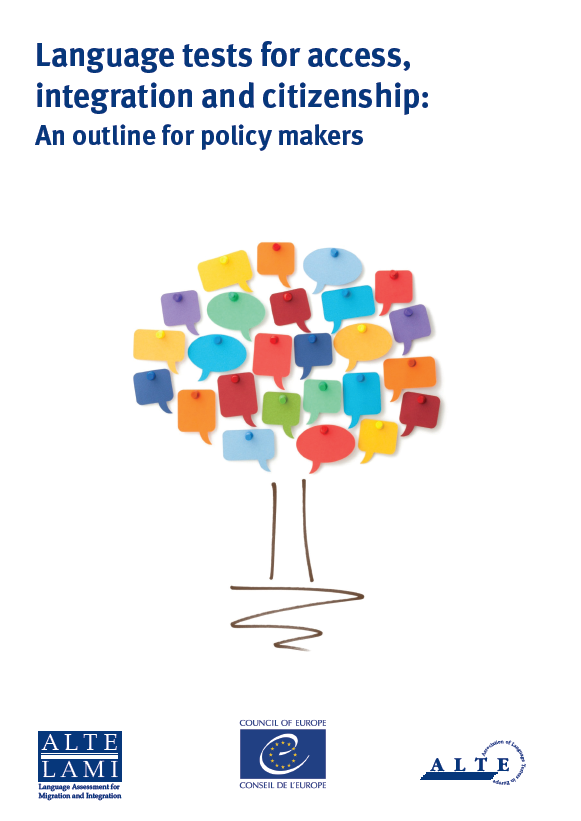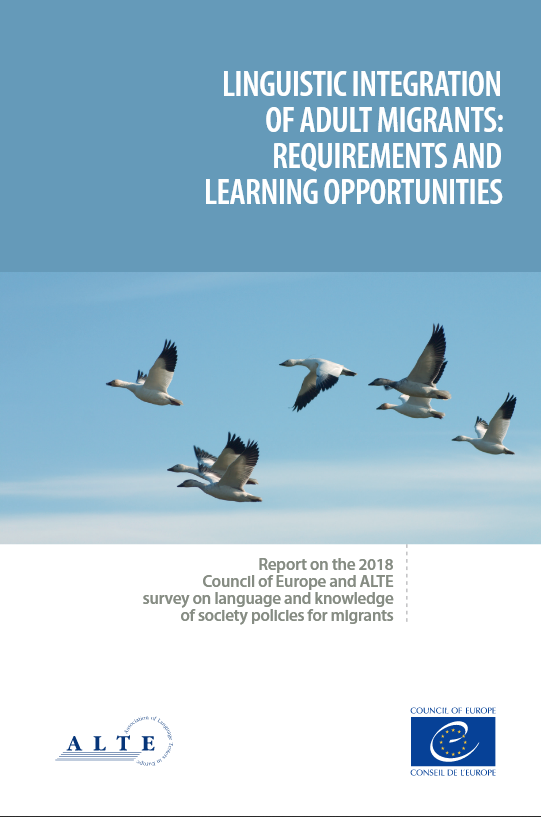RESSOURCES - guides gratuits et contenus de référence
ALTE has produced many guides and reference materials, in a range of languages. They are all free to download. You may use these resources freely for educational, research or other non-profit making purposes, as long as you cite the source.
You might also be interested in viewing our International Conference Proceedings, bi-annual conference material, videos, information about our auditing system (Q-Mark) and Minimum Standards or our History Book.
| Principles of Good PracticeALTE's Principles of Good Practice (2020) is the third edition of a document that was first put together in 1994. The document is intended as a coherent set of guidelines that all ALTE members and affiliates subscribe to when creating and running language tests. It sets out ethical considerations and the concept of usefulness in examinations and examination qualities, placing these as principles that are worked out in ALTE's Quality Management System. The ALTE Principles of Good Practice is also available in Basque. |
| Manuel pour l'élaboration et la passation de tests et d'examens de langueThe Manual for Language Test Development and Examining (2011) was produced by ALTE on behalf of the Language Policy Unit of the Council of Europe. This manual is for use with the CEFR and it is available in Basque, Dutch, French and German. |
| Directives pour l'élaboration des évaluations linguistiques d'une langue à des fins spécifiques (en anglais seulement)The "Guidelines for the Development of Language for Specific Purposes Tests" (2018) was produced by ALTE as a supplement to the 2011 Manual for Language Test Development and Examining. The production of the Guidelines was co-ordinated by the SIG LSP. The Guidelines are now illustrated with the development process of an examination for specific academic purposes (LSAP) in this document: Illustration for the Guidelines on Language for Specific Purposes Tests . The material has the purpose of showing the way in which the steps in the Guidelines were followed in the development and administration of this examination, with direct comments related to this process, the problems encountered and the possible solutions which were suggested. |
| Aligning Language Education with the CEFR: A HandbookThis resource has been prepared for those who are teaching, testing and developing materials in language education, to inform and suggest ways to help undertake a practical or applied CEFR alignment exercise. It also serves stakeholders concerned with education policy matters and decision-making. The Handbook (2022) is published jointly by ALTE, EALTA, UKALTA and the British Council. It is also available in Spanish (translated by Instituto Cervantes) and German (translated by Goethe-Institut) . You may also want to download the CEFR Alignment Editable Forms which accompany the handbook, also available in German (translated by Goethe-Institut). |
LAMI-LASLLIAM Assessment ToolsThe LAMI-LASLLIAM Assessment Tools (2022) is a collection of four assessment tools for using the Literacy and Second Language Learning for the Linguistic Integration of Adult Migrants (LASLLIAM) Reference Guide (a separate document published by the Council of Europe in 2022) for assessment purposes within learning environments. The tools are part of the broader work relating to piloting of the LASLLIAM scales used for teachers and volunteers involved in literacy and second language courses in the migration context. The tools are produced by ALTE's LAMI SIG in collaboration with the Council of Europe. |
Uneven Language Profiles & Differentiated Language RequirementsThe aim of the report Uneven Language Profiles and Differentiated Language Requirements: Recommendations for test developers, policy makers and employers (2023) is to raise awareness about the advantages of an uneven profile approach in language testing, i.e., measuring learners’ language skills separately in different parts of the test. The report presents the results of a survey investigating whether ALTE members do indeed measure and report language skills separately in the tests they develop, as well as the degree to which test users in different Council of Europe member states set differentiated language requirements for different contexts. Finally, the report presents examples of good practice from five countries in which there are language tests measuring uneven language profiles as well as examples of test users setting differentiated language requirements. The target readers for this report are professionals working in language teaching and assessment, primarily in the migration context. |
| Tests de langue pour l'accès, l'intégration et la citoyenneté : descriptif à l’intention des décideursThis booklet (2016) was produced by the SIG LAMI on behalf of the Language Policy Unit of the Council of Europe. It is currently also available in Italian and Finnish. |
| Linguistic Integration of Adult Migrants: Requirements and Learning OpportunitiesThis report was produced on the 2018 Council of Europe and ALTE survey on Language and Knowledge of Society (KoS) policies for migrants. This is available on the Council of Europe's website. |
| Glossaire multilingue des termes de l'évaluation linguistiqueLe glossaire multilingue d'ALTE (1998) a un rôle particulièrement important à jouer pour encourager le développement des évaluations linguistiques dans les langues moins enseignées en faisant exister des termes qui peuvent être nouveaux en parallèle de leur équivalent parfaitement connu dans les langues couramment utilisées . Le glossaire est constitué de définitions disponibles en 10 langues : catalan, danois, néerlandais, anglais, français, allemand, irlandais, italien, portugais et espagnol. Ce document sera utile à de nombreuses personnes travaillant dans le contexte des langues européennes, impliquées dans les tests et l’évaluation. |
Relier les examens de langues au Cadre européen commun de référence pour les langues : Apprendre, enseigner, évaluer (CECRL) : un manuelALTE a contribué au Manuel du Conseil de l'Europe « Relier les examens de langues au Cadre européen commun de référence pour les langues : apprendre, enseigner, évaluer (CECR) » et a produit des grilles d'analyse de contenu (2014) pour l'Expression orale et l'Expression écrite (analyse et présentation). Tous ces éléments sont disponibles sur le site Web du Conseil de l'Europe. |
Listes de contrôle d'analyse de contenuÉlaboration et listes de contrôle descriptives pour les tâches et les examens (2001) : Liste de contrôle Expression écrite Liste de contrôle Compréhension orale | Listes de contrôle Tâches uniquesCes listes de contrôle d'analyse de contenu sont à utiliser avec une tâche (2001) : Liste de contrôle Tâche unique Lecture Liste de contrôle Tâche unique Expression écrite Liste de contrôle Tâche unique Compréhension orale Liste de contrôle Tâche unique Expression orale | Listes de contrôle Assurance QualitéCes listes de contrôle (2001) sont adaptées à chaque étape du cycle de production de l'examen : Liste de contrôle Assurance Qualité 1 - Construction du test Liste de contrôle Assurance Qualité 2 - Administration et logistique Liste de contrôle Assurance Qualité 3 - Notation, classement et résultats Liste de contrôle Assurance Qualité 4 - Analyse de test et évaluation post-examen |
Projet Can Do ALTELe projet « Can Do » d'ALTE a élaboré et validé un ensemble d'échelles liées aux performances, décrivant ce que les apprenants peuvent réellement faire dans une langue (2002). Le projet a largement contribué à l’élaboration du CECR et est reconnu à l’annexe D du document 2001 du CECR. Les déclarations Can Do sont disponibles dans les langues suivantes : |
ALTE Materials for the guidance of test item writersCet ensemble de documents (2005) a été conçu pour aider à former les personnes impliquées dans le processus de développement, de rédaction, d’administration et de rapport des résultats de tests d’une langue apprise en tant que langue étrangère. |

